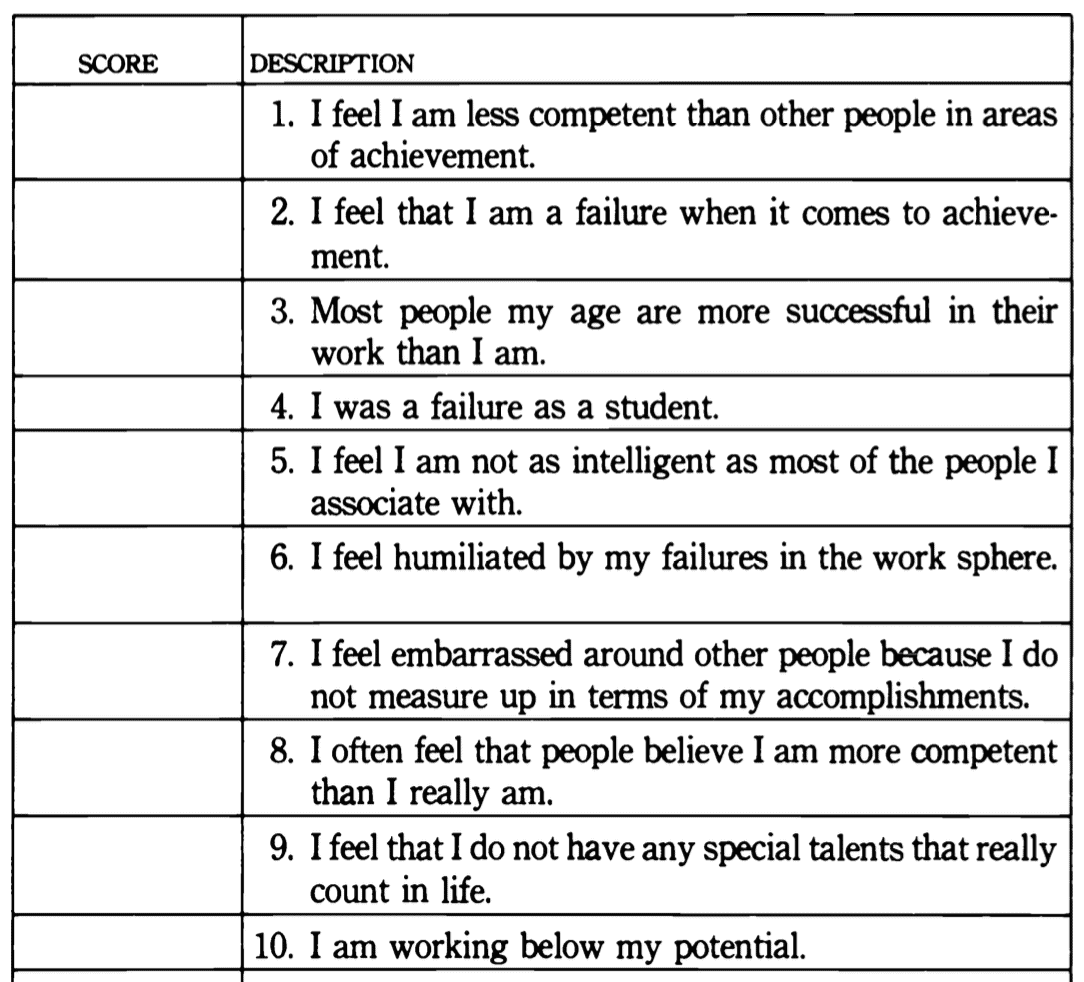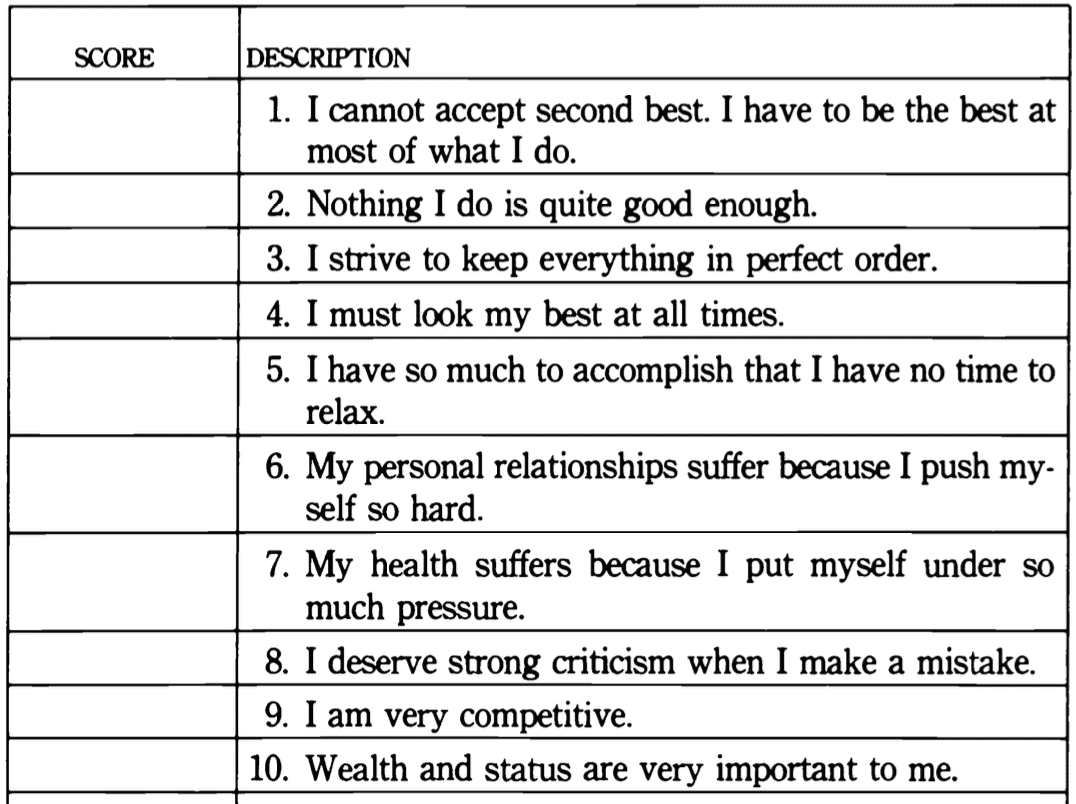If you read between the lines of most of my articles here on Finding Poland, I believe you won’t detect much negativity. In contrast, my tone is overwhelmingly positive in posts about why I like writing and why expats should keep a blog. Recently, however, I’ve discovered one major disadvantage of blogging. This is my ongoing battle with something called the failure lifetrap.
I will now go on to explain where I came across patterns of beliefs known as lifetraps. Following that, I will provide an overview of the origins of the failure lifetrap and then assess these origins from my own experience. Then, I will measure the strength of my Failure lifetrap. Following that, I will describe how the failure schema comes to the fore for me as a dedicated blogger. Finally, I will share a few steps I can take to change my Failure lifetrap.
Where did I come across the concept of lifetraps?
Before I explain the circumstances regarding how I came to educate myself about self-defeating personality patterns, I should define what a lifetrap is.
Essentially, lifetraps are “chronic, self-defeating personality patterns.” (Young and Klosko, 1994, p.xii). Young and Klosko (1994, pp.1-2) ably describe how these personality patterns develop and crop up throughout life:
A lifetrap is a pattern that starts in childhood and reverberates throughout life. It began with something that was done to us by our families or by other children. We were abandoned, criticized, overprotected, abused, excluded, or deprived - we were damaged in some way. Eventually the lifetrap becomes part of us. Long after we leave the home we grew up in, we continue to create situations in which we are mistreated, ignored, put down, or controlled and in which we fail to reach our most desired goals.
Lifetraps determine how we think, feel, act, and relate to others. They trigger strong feelings such as anger, sadness, and anxiety.
I came across the concept of lifetraps in a wonderful, eye-opening book written by two American psychologists, Janet Klosko and Jeffrey Young. The book is called Reinventing your Life: The Breakthrough Program to End Negative Behavior and Feel Great Again. The authors encourage readers to recognise and remedy self-defeating thoughts, behaviours and feelings.
Whilst reading Reinventing your Life, it often occurred to me that I have a great deal to be grateful for. For instance, I have a wonderful and understanding wife, the freedom to work when and where I want and a reasonable level of financial stability. However, I’m unable to savour life. I can’t live for the moment. I find it difficult to believe in my accomplishments.
The Origins of the Failure Lifetrap
I will now summarise the origins of the Failure lifetrap, as put forward by Young and Klosko (1994, p.244):
1. You had a parent (often your father) who was very critical of your performance in school, sports, etc. He/She often called you stupid, dumb, inept, a failure, etc. He/She may have been abusive.
2. One or both parents were very successful, and you came to believe you could never live up to their high standards. So you stopped trying.
3. You sensed that one or both of your parents either did not care about whether you were successful, or, worse, felt threatened when you did well. Your parent may have been competitive with you – or afraid of losing your companionship if you were too successful in the world.
4. You were not as good as other children either in school or at sports, and felt inferior. You may have had a learning disability, poor attention span, or been very uncoordinated. After that, you stopped trying in order to avoid humiliation by them.
5. You had brothers or sisters to whom you were often compared unfavorably. You came to believe you could never measure up, so you stopped trying.
6. You came from a foreign country, your parents were immigrants, or your family was poorer or less educated than your schoolmates. You felt inferior to your peers and never felt you could measure up.
7. Your parents did not set enough limits for you. You did not learn self-discipline or responsibility. Therefore you failed to do homework regularly or learn study skills. This led to failure eventually.
Assessing the Origins of the Failure Lifetrap from my Own Experience
I’d now like to comment on the origins of the Failure lifetrap, as put forward by Young and Klosko, based on my experience:
A Summary of my time at Primary and Secondary School
From around the age of nine, I’ve always set extremely high standards for myself. This is because I excelled at creative writing and spelling at school. By “excelled” at these pursuits, I mean my teachers at primary school and secondary school didn’t quite know what to do with me. Therefore, I think the prodigiousness I possessed in the field of the English language turned me into an all-round perfectionist, particularly in the areas of revision and memory recall for exams, and the execution of schoolwork assignments in general.
At primary school, I often had to sit to one side with my form teacher to take extended spelling tests because I’d invariably ace the general test which all pupils had to sit. Throughout secondary school, I didn’t have to contend with any spelling tests but I really came into my own in the area of creative writing. The evidence suggests that I had no reason to feel inferior to my peers at secondary school. Unfortunately, the opposite is quite true. I felt very defective in the company of my classmates.
Although I had a way with words, I really struggled when it came to practical subjects at school. I was hopeless at Science, Art, Electronics and Design and Technology. Frankly, I felt a great deal of anxiety before I had, for example, Chemistry and Electronics. I guess that I was scared of the humiliation I often felt if I didn’t know the answer to a question a teacher would ask me. Unfortunately, I rarely understood any kind of practical tasks that were set. Therefore, I spent a lot of time pretending to do something constructive as a feeble attempt to save face.
My parents didn’t take much of an interest in my schoolwork. Therefore, I felt very much alone with the insecurities, humiliation and struggles I faced in the classroom.
Parental influence on the development of the Failure Lifetrap
The last paragraph I wrote about my parents failing to take much of an interest in my schoolwork may give you the impression that my parents were/are to blame for the development of the Failure lifetrap in my case. It would be hasty to blame them although I certainly didn’t benefit from their aloofness in my formative years.
With regard to the origins of the Failure lifetrap I listed above (see Young and Klosko, 1994, p.244), my parents never criticised my performance in school. Nor did they try to degrade me in any way.
Origin 2. regarding the status of my parents also never applied to me. Although my parents are both bright and intelligent people, I wouldn’t say they were too busy being successful when I was growing up. Therefore, I didn’t come to believe that I had to live up to their high standards.
In spite of my reluctance to blame my parents for the development of the Failure lifetrap, I believe that origins 3. and 7. above reveal something about why I often feel like a failure. Regarding origin 3., I did sense that both of my parents didn’t care about whether I was successful or not. Moreover, I think that I missed their guidance when it came to setting enough limits for me. Typically, I did far too much planning and reading for essays, and got carried away with rote memorisation in preparation for my school-leaving exams. This is related to having unrelenting standards which I will write about later on in this post.
Without blowing my own trumpet, I showed signs of prodigiousness when it came to writing, spelling and cue sports. I also had an astonishing memory. A question asked by Young and Klosko (1994, p.250) resonates well with me:
How well could you have done if you had been praised, supported, and guided in areas of achievement where you had potential?
It’s possible that the Failure lifetrap has overwhelmed me in recent years because I’m constantly comparing myself to the talented child I was.
More on my feelings of inferiority
It’s my perception that the origins of my Failure lifetrap are more related to the feelings of inferiority I felt at school.
I found myself in the top set for most subjects in my final two years at school. However, as I’ve already mentioned, I didn’t shine in practical and scientific subjects. My ego was badly bruised when, in science tests, I’d usually wind up finishing in the bottom three out of thirty students. I think that I came to adore and idolise the all-rounders in my group who could seemingly do no wrong, who seemingly had no weaknesses at all. From doing scientific experiments to understanding the ins and outs of electronic systems, I wasn’t able to grasp anything practical at all.
Regarding the exceptional results I achieved at primary school with regard to my reading age and spelling, these disciplines weren’t tested at secondary school so I no longer had the chance to shine like before. My secondary school English teachers were able to praise my creative writing. I didn’t receive much praise in many other areas of the curriculum.
Measuring the strength of my Failure Lifetrap
I’d like to show you how my adult life, in particular my work as a blogger, has been affected by my Failure lifetrap. The questionnaire below appears in Young and Klosko (1994, p.241):

The scoring key provided by the authors goes from 1-6, with 1 being “completely untrue of me” and 6 “Describes me perfectly”.
I must admit that description 2 (I am a failure when it comes to achievement) in the questionnaire above describes me perfectly. Even though I recently achieved 10,000 pageviews in one month for the first time on Finding Poland, I’ve been overcome with guilt rather than joy. Questions such as ‘Why didn’t I pull my finger out from day 1?’ have been running around my mind. To me, it was a failure that it took four years to reach 10,000 pageviews a month. Finding Poland reached 16,860 pageviews for the month of June 2024. Things are slowly beginning to go the way I want them to.
Description 6 (I feel humiliated by my failures in the work sphere) also applies to me. I feel that I should have cooperated with far more freelancers and companies over the past few years with a view to writing sponsored content. Sadly, I lack the confidence to reach out to people to make things happen. Therefore, feelings of humiliation occasionally affect me because I haven’t really succeeded in a financial sense. I’m not expecting to become rich out of Finding Poland. I just want to earn some extra cash to pay the bills.
Fortunately, I don’t have issues with comparing myself to other people my age. Therefore, my scores for descriptions 3,5 and 7 are quite low. Moreover, I don’t think I was a failure as a student (description 4), despite feeling inferior to my peers at secondary school. Finally, description 9 (I feel that I do not have any special talents that really count in life) is completely untrue of me.
All in all, my failure score is 29. This means that the Failure lifetrap applies occasionally. However, I can safely say that this lifetrap is an issue in my life as my score is just one point below the Moderate range.
My Experience of Failure as a Blogger
Even though plenty of people have praised the quality and depth of my articles on Finding Poland, I’ve been riddled with several issues, such as the impostor syndrome and unrelenting standards. I’ll know go into my experience of failure as a Blogger:
Ways I Sabotage myself and make sure that I remain a failure
Young and Klosko (1994, pp.246-247) mention 12 ways in which those with the Failure lifetrap sabotage themselves and make sure that they remain a failure. Let me know elaborate on some of the ways which apply to me:
- You avoid taking the steps necessary to get promotions in your chosen career; your advancement has been unnecessarily halted (e.g., you fail to accept promotions or to ask for them; you do not promote yourself or make your abilities widely known to the people who count; you stay in a safe, dead-end job) (Young and Klosko, 1994, p.246):
Comments:
On the face of it, this particular act of sabotage may apply more to ‘traditional’ jobs. However, reading between the lines, some of the points sum up my approach to blogging very aptly indeed. For example, it’s very difficult for me to promote my articles in the right places online and on social media. I have read many times that Pinterest is the place to go if I want to drive more traffic to Finding Poland. Nevertheless, I’m very much stuck in my comfort zone.
- You feel that you are basically stupid or untalented, and therefore feel fraudulent, even though objectively you have been quite successful. (Young and Klosko, 1994, p.247):
Comments:
As previously mentioned, Finding Poland hit 16,860 pageviews for the month of June 2024. Objectively, I know that I have been quite successful and the blog is heading in the right direction. After all, keeping this blog has been nothing more than a part-time venture over the past four years. Sometimes, however, I do feel like a fraud. Perhaps ‘stupid’ is too strong a word but I often question whether keeping a travel/expat blog requires any talent at all.
Unrelenting Standards
As I previously mentioned, I never received any advice from parents and teachers about setting limits when it came to schoolwork and revising for exams. As a result of this lack of guidance, all the signs suggest that I hold an Unrelenting Standards schema.
Young and Klosko (1994, pp.294-313) devote an entire chapter to the Unrelenting Standards lifetrap. I believe this lifetrap is inextricably linked to the Failure lifetrap. Here’s the questionnaire provided by Young and Klosko (1994,p.296) for measuring the strength of the Unrelenting Standards lifetrap:

My Unrelenting Standards score is certainly in the 30s, meaning that this lifetrap is an issue in my life.
Descriptions 5 and 6 are particularly relevant to me. Most serious bloggers probably feel that they have so much to accomplish that they have no time to relax. When you reach 10,000 pageviews a month, the urge to reach 20,000 is more intensive than the urge to reach 10,000. After hitting 20,000 pageviews, my following goal will be to hit 50,000 pageviews a month. Achieving 50,000 pageviews is a huge milestone because it may allow bloggers to cooperate with esteemed ad management partners, such as Mediavine.
All in all, it’s hard for me to relax when I have so many articles to write about life in Poland. I push myself very hard and I can’t deny it’s had a knock-on effect on my marriage. Even though I do spend a lot of time with my wife, I’m quite often mentally absent.
Reinforcing the Failure lifetrap through Escape
Young and Klosko (1994, p.242) sum up my feelings about blogging very well:
You reinforce the Failure lifetrap primarily through Escape. Your avoidance is what holds you back. You avoid taking the steps necessary to widen your knowledge and advance your career. You let opportunities for success pass you by. You are afraid that if you try you will fail.
To take Finding Poland to the next level, it’s clear that I need to do four things:
- Reach out to sponsors
- Attract sponsored content from brands
- Build a stronger online presence
- Reach 50,000 pageviews a month to cooperate with esteemed ad management partners
With the Failure lifetrap, the degree to which one uses Escape as a coping style is often significant (Young and Klosko, 1994, p.243). Certainly, I’m affected by self-sabotage because I often feel there’s no point in making the effort when I’m doomed to fail anyway. I procrastinate, I get distracted, and I occasionally rush posts just to get over the line.
Changing my Failure Lifetrap
Young and Klosko (1994, p.248) describe eight steps to changing the Failure lifetrap:
1. Assess whether your feeling of failure is accurate or distorted.
2. Get in touch with the child inside of you who felt, and still feels,
like a failure.
3. Help your inner child see that you were treated unfairly.
4. Become aware of your talents, skills, abilities, and accomplishments in the area of achievement.
If you have, in fact, failed relative to your peers:
5. Try to see the pattern in your failures.
6. Once you see your pattern, make a plan to change it.
7. Make a flashcard to overcome your blueprint for failure. Follow
your plan, step-by-step.
8. Involve your loved ones in the process.
Based on several of the steps above, I will now briefly describe my experience and views with regarding to changing my Failure lifetrap:
- Assess Whether Your Feeling of Failure Is Accurate or Distorted
Young and Klosko (ibid.) encourage readers to list a range of people with whom they went to high school, college or university with. They have to write down what each person has accomplished within their chosen fields. The authors (ibid.) ask:
How far have they progressed? How much are they paid? How much responsibility do they have at work?
Frankly, I don’t have much contact with people I went to school, college or university with. However, I know that several of my former peers work for successful startups and live in London. It’s hard for me to expand on this knowledge. Even if my old schoolmates do earn 10 times more than I do, I can take comfort in the fact that I’ve never really been under stress due to work. I’m referring to both my teaching and writing careers here. The true measure of success goes beyond a number in one’s bank account. I tend to view success in terms of being the master of my own schedule and having the freedom to work where and when I want.
- Become Aware of Your Talents, Skills, Abilities, and Accomplishments in the Area of Achievement.
This particular step is worthy of my attention because I have to become aware of my special abilities. There are many kinds of intelligence, and as Young and Klosko (1994, p.252) state, “It is the rare person who truly has no talents.”
I need to review, as objectively as possible, what I’ve achieved so far as a writer. For example, I have a draft of a book stored on my computer so I don’t have to focus solely on Finding Poland for my writing successes.
Young and Klosko (ibid.) recommend readers to make a list of their talents, skills and abilities. Therefore, forgive my boastfulness for 15 seconds:
- I’m a good writer and can use emotive language to connect with my audience
- I learn languages very easily
- I am highly educated in the field of English language instruction
- I can achieve a state of creative flow as a writer when I’m not distracted or anxious
- I am a very good interviewer
With that list, it seems that I’m already on the road to reinventing my life.
- Involve Your Loved Ones in the Process.
I admit that I have been very stubborn and a bit arrogant over the years. I don’t know everything. When it comes to Finding Poland, I could do with creating, what Young and Klosko (1994, p.256) call, “an interpersonal environment that counters, rather than supports, your Failure lifetrap”.
For a start, I could ask my wife for greater support. Don’t get me wrong, she wants me to succeed. However, it’d be great to hear some more impactful words of encouragement from time to time.
Final Thoughts
Young and Klosko (2004, p.247) offer this thought-provoking take on what society values more in a man than achievement:
A man who feels like a failure in his career is likely to feel like a failure as a person.
Does such a stance resonate with the male population who’ve stumbled to the conclusion of this post? The seriousness of being overwhelmed by the Failure lifetrap hit home when I read this sentence.
The Failure lifetrap is connected to so many other lifetraps. I know that I have to work on my Unrelenting Standards lifetrap, Defectiveness lifetrap and Emotional Deprivation lifetrap.
I know that I’m willing to close off my escapes – the procrastination, the unwanted search for distractions and the rush to get over the line with some posts. In the near future, I hope that I’ll be ready to capitalise on my strengths and make Finding Poland a project to be really proud of.
Reference:
Young, J.E.E. and Klosko, J.S. (1994). Reinventing your Life: The Breakthrough Program to End Negative Behaviour and Feel Great Again, New York: Plume Publishing

